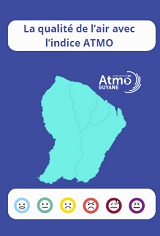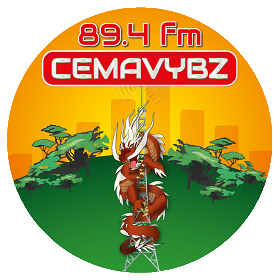Blada.com
mardi 03 février
Boîtes aux lettres
Courrier des lecteurs
Petites annonces
Emploi / Formation
Covoiturage
Infos citoyennes
Infos citoyennes
15/10/21
Des fêtes pour «apprendre à vivre avec le Covid»
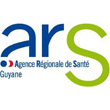 L’ARS de Guyane lance un appel à projets visant recueillir des projets présentés par des organisateurs de secteur de l’événementiel, les sélectionner et les soutenir. En effet, quel que soit le type d’événement, son organisation nécessite des ajustements importants pour lutter contre la propagation du Covid-19. Les projets sélectionnés seront soutenus afin que puissent être mis en œuvre les réglementations sanitaires, telles que le respect du nombre maximum de visiteurs, les règles de distanciation, les mesures d’hygiène et de contrôle garantissant ainsi la sécurité des participants. Les cinq projets sélectionnés recevront 10 000 euros chacun. Solène Wiedner-Papin, directrice de la santé publique à l’ARS, en explique la philosophie et les modalités.
L’ARS de Guyane lance un appel à projets visant recueillir des projets présentés par des organisateurs de secteur de l’événementiel, les sélectionner et les soutenir. En effet, quel que soit le type d’événement, son organisation nécessite des ajustements importants pour lutter contre la propagation du Covid-19. Les projets sélectionnés seront soutenus afin que puissent être mis en œuvre les réglementations sanitaires, telles que le respect du nombre maximum de visiteurs, les règles de distanciation, les mesures d’hygiène et de contrôle garantissant ainsi la sécurité des participants. Les cinq projets sélectionnés recevront 10 000 euros chacun. Solène Wiedner-Papin, directrice de la santé publique à l’ARS, en explique la philosophie et les modalités.
Qu’est-ce que l’appel à projets « Fête No Covid » ?
Il s’agit d’un appel à projets qui a pour objectif de soutenir le monde de l’événementiel en Guyane, durement touché par l’épidémie de Covid-19. Il s’agit de les accompagner dans l’organisation d’événements festifs dans les meilleures conditions de sécurité. Il vise à nous apprendre à vivre avec le Covid, à retrouver des moments de plaisir en fixant les mesures sanitaires les plus efficaces. On sait que le risque zéro n’existe pas. On aura peut-être des manifestations avec un cas. Mais il faut essayer de mettre toutes les chances de notre côté et de permettre aux Guyanais de retrouver des une vie culturelle et festive malgré la situation sanitaire qui perdure. Cinq projets seront retenus. Ils recevront chacun 10 000 euros de l’ARS.
Quel type de manifestations est concerné ?
Tout type de manifestations qui rassemblent beaucoup de monde, avec un flux d’individus important concentré dans un endroit où la contamination serait importante si on ne mettait pas en place des règles sanitaires. Ce peut être un concert à l’air libre, un spectacle dans une salle, un événement dans un centre commercial, une soirée dansante, un événement place des Amandiers… Ce peut être aussi une manifestation sportive. Toute situation qui rassemble du monde. Il ne faut vraiment pas que les porteurs de projet se censurent.
Ceux qui ne seront pas retenus au titre de l’appel à projets pourront-ils avoir lieu quand même ?
Oui. Cela signifie seulement qu’ils ne bénéficieront pas du soutien financier de l’ARS. Le dépôt d’un projet « Fête No Covid » n’exempte pas le porteur de déposer son dossier à la préfecture. L’ARS est sur l’aspect sanitaire du projet. Mais le projet doit respecter toutes les règles de demande d’autorisation. La préfecture reste l’autorité compétente pour autoriser les manifestations sur la voie publique.
Quelles sont les mesures sanitaires à mettre en place et impliquent-elles le passe sanitaire ?
Oui, cela implique le passe sanitaire. Les mesures seront différentes selon le lieu. En intérieur, ce sera plus restrictif qu’en extérieur. En extérieur, il faudra délimiter un périmètre, pour permettre le contrôle du passe sanitaire. En fonction de l’événement, gérer les flux, que les participants ne se croisent pas, éviter qu’ils s’amassent. S’assurer qu’il y ait suffisamment de blocs de réhydratation pour éviter que les gens s’amassent autour. C’est essayer de contrôler au maximum le risque que les gens soient en contact sans masque. Quand on boit un verre, on n’a pas de masque. Et c’est avoir une liste des participants. Pour un concert par exemple, les musiciens et les spectateurs. Parce que s’il y a un cas positif parmi les participants, il faut qu’on puisse retracer le parcours des gens pour effectuer le contact tracing.
Pourra-t-il y avoir des manifestations sans masque ?
Non. En l’état, et au regard de l’incidence actuelle, l’événement aura lieu avec un masque.
Qui fixe la jauge ?
La préfecture. Ce sera en fonction de l’incidence. On cherche à « vivre avec le Covid ». Si nous avons une incidence identique à aujourd’hui, une jauge sera définie. Si ça baisse, peut-être n’y aura-t-il pas de jauge. Si ça remonte, elle sera peut-être plus restrictive.
L’événement peut-il se tenir le 31 décembre au soir ?
Oui.
Si le couvre-feu est toujours en vigueur, la manifestation devra-t-elle se terminer avant ?
Il y aura une grille de sélection, avec un comité de sélection qui déterminera, au cas par cas, s’il est possible de donner une contremarque pour justifier un retour après le couvre-feu. L’objectif est vraiment de faciliter la reprise. Le but n’est pas de mettre des freins. On essaiera d’adapter au mieux la reprise des événements au contexte sanitaire et réglementaire.
Qui participe au comité de sélection ?
La préfecture, l’ARS, les forces de l’ordre, l’état-major interministériel de zone et le comité citoyen de la transparence.
Y aura-t-il un contrôle du respect des règles par l’organisateur ?
Oui, il y aura un contrôle du cahier des charges.
Ces manifestations interviennent quelques semaines avant le carnaval. Est-ce un moyen de tester des dispositifs ?
C’est un moyen de voir comment cela se passe, d’en tirer des leçons, d’améliorer notre stratégie pour apprendre à vivre avec le Covid.
Dès la diffusion de l’appel à projet, des voix se sont élevées pour dénoncer un chantage au passe sanitaire. Qu’est-ce que cela vous inspire ?
Je comprends la réaction. L’objectif est vraiment de réapprendre à vivre avec le Covid. Nous sommes dans une crise qui dure. Au regard du taux de vaccination, la situation va durer. Nous avons des outils qui permettent de reprendre une vie à peu près comme avant, de retrouver des moments de plaisir. Un des outils pour réduire le risque au maximum, c’est le passe sanitaire.
« C’est maintenant que le carnaval 2022 se prépare »
Hier, à l’issue de la cellule interministérielle de crise, le préfet Thierry Queffelec a souligné que cet appel à projets « Fête No Covid » servira aussi à voir quels dispositifs sont les meilleurs, afin de les reproduire en janvier lors du carnaval. « De quelle façon peut-on préparer un carnaval en 2022 ? C’est maintenant que ça se prépare. Il y a cet appel à projets. On va le pratiquer sur le terrain en faisant une action. Si elle est bonne, c’est la méthodologie que l’on retiendra. Je ne veux pas imaginer devoir dire « non » une deuxième fois (au carnaval) sans avoir essayé. On imagine que le carnaval puisse se passer avec un passe sanitaire, par exemple, et dans un environnement où le Covid va tourner. Le taux de vaccination est trop faible. Il est évident que nous allons devoir vivre avec le Covid. Comment allons-nous vivre avec le Covid pendant le carnaval ? Il y a un appel à projets, totalement financé sur des fonds d’Etat. Nous sommes proactifs pour trouver des solutions qui doivent exister. »
Comment répondre à l’appel à projets ?
Les modalités de l’appel à projets sont disponibles sur le site de l’Agence régionale de santé (ARS). Cinq projets seront sélectionnés et recevront chacun 10 000 euros. Ils se dérouleront avant le 31 décembre. Les organisateurs ont jusqu’au 29 octobre pour adresser leur candidature à ars973-crise@ars.sante.fr.
The French Guiana ARS is launching a call for projects aimed at collecting projects presented by organizers of the event sector, selecting them and supporting them. Indeed, whatever the type of event, its organization requires significant adjustments to fight against the spread of Covid-19. The selected projects will be supported so that health regulations can be implemented, such as compliance with the maximum number of visitors, distancing rules, hygiene and control measures thus guaranteeing the safety of participants. The five selected projects will receive 10,000 euros each. Solène Wiedner-Papin, director of public health at ARS, explains the philosophy and methods.
What is the "No Covid Party" call for projects?
This is a call for projects which aims to support the world of events in French Guiana, hard hit by the Covid-19 epidemic. It is a question of supporting them in the organization of festive events under the best security conditions. It aims to teach us to live with the Covid, to find moments of pleasure by setting the most effective health measures. We know that zero risk does not exist. We may have demonstrations with a case. But we must try to put all the chances on our side and allow Guyanese to regain a cultural and festive life despite the continuing health situation. Five projects will be selected. They will each receive 10,000 euros from the ARS.
What type of events are affected?
All types of events that bring together a large number of people, with a large flow of individuals concentrated in a place where contamination would be significant if health rules were not put in place. It can be an open-air concert, a show in a hall, an event in a shopping center, a dance party, an event at the Place des Amandiers… It can also be a sporting event. Any situation that brings people together. The promoters really shouldn't censor themselves.
Can those who are not selected under the call for projects still take place?
Yes. It only means that they will not benefit from the financial support of the LRA. Filing a "No Covid Party" project does not exempt the bearer from submitting their file to the prefecture. The ARS is on the health aspect of the project. But the project must follow all the rules for applying for permission. The prefecture remains the competent authority to authorize demonstrations on the public highway.
What are the sanitary measures to be put in place and do they involve the sanitary pass?
Yes, this involves the health pass. The measurements will be different depending on the location. Indoors, it will be more restrictive than outdoors. Outside, it will be necessary to delimit a perimeter, to allow the control of the sanitary pass. Depending on the event, manage the flows so that participants do not cross paths, prevent them from huddling together. Make sure there are enough rehydration packs to keep people from crowding around. It's trying to control as much as possible the risk of people coming into contact without a mask. When we drink a drink, we don't have a mask. And that's having a list of participants. For a concert, for example, musicians and spectators. Because if there is a positive case among the participants, we must be able to retrace people's journeys to carry out contact tracing.
Can there be demonstrations without a mask?
No. As it is, and given the current incidence, the event will take place wearing a mask.
Who sets the gauge?
Prefecture. It will be based on the incidence. We are trying to "live with the Covid". If we have the same impact as today, a gauge will be set. If it goes down, maybe there won't be a gauge. If it goes back up, it might be more restrictive.
Can the event be held on the evening of December 31?
Yes.
If the curfew is still in effect, will the demonstration have to end earlier?
There will be a selection grid, with a selection committee that will determine, on a case-by-case basis, whether it is possible to give a countermark to justify a return after the curfew. The goal is really to facilitate the recovery. The point is not to put the brakes on. We will try to adapt the resumption of events as well as possible to the health and regulatory context.
Who participates in the selection committee?
The prefecture, the ARS, the security forces, the interministerial zone staff and the citizens' transparency committee.
Will there be a control of compliance with the rules by the organizer?
Yes, there will be a control of the specifications.
These events take place a few weeks before the carnival. Is this a way to test devices?
It's a way to see how it's going, to learn from it, to improve our strategy for learning to live with Covid.
As soon as the call for projects was broadcast, voices were raised to denounce blackmail in the health pass. What does this inspire you?
I understand the reaction. The goal is really to relearn how to live with the Covid. We are in a crisis that lasts. With regard to the vaccination rate, the situation will last. We have tools that allow you to resume a life more or less as before, to find moments of pleasure. One of the tools to reduce the risk as much as possible is the health pass.
"The 2022 carnival is getting ready now"
Yesterday, after the interministerial crisis unit, Prefect Thierry Queffelec stressed that this "No Covid Party" call for projects will also be used to see which devices are the best, in order to reproduce them in January during the carnival. “How can we prepare for a carnival in 2022? Now is the time to prepare. There is this call for projects. We will practice it in the field by doing an action. If it is good, this is the methodology that we will retain. I don't want to imagine having to say "no" a second time (at the carnival) without trying. We imagine that the carnival could take place with a health pass, for example, and in an environment where the Covid will turn. The vaccination rate is too low. It is obvious that we are going to have to live with the Covid. How are we going to live with the Covid during the carnival? There is a call for projects, fully funded from state funds. We are proactive in finding solutions that must exist. "
How to respond to the call for projects?
The terms of the call for projects are available on the website of the Regional Health Agency (ARS). Five projects will be selected and will each receive 10,000 euros. They will take place before December 31st. The organizers have until October 29 to apply to ars973-crise@ars.sante.fr.
This article is from the Professional Letter of the Regional Health Agency. You can subscribe to it by filling out the following form: https://forms.sbc28.com/5a8bed50b85b5350ef1cd117/t13M7zUZQi2XMq5E3DdnhQ/0WQoeDwjRXqJblCpKbLDzA/form.html
Raccourcis


passer une petite annonce

passer une annonce de covoiturage
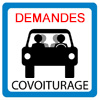
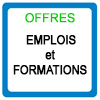
passer une annonce d’emploi
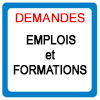

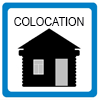
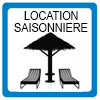
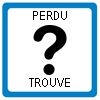
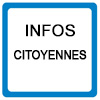
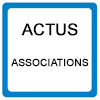
associations, postez vos actualités

participez au courrier des lecteurs
La Guyane c’est ici
La qualité de l’Air avec
ATMO
Photothèque

Lancements 2022
Vol 259 Ariane 5



